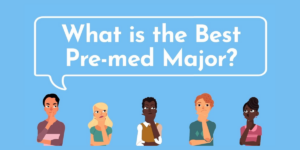In the past, the path for medical students seemed clearly defined: complete your MD, pursue a residency, and become a practicing clinician. But in today’s rapidly changing world, the identity of a doctor is no longer confined to white coats, hospital wards, and stethoscopes. Medicine is intersecting with technology, policy, entrepreneurship, education, and business in unprecedented ways.
Increasingly, doctors are utilizing their medical training in diverse and impactful ways that extend far beyond the exam room. This evolution opens up a vast landscape of career opportunities for medical graduates who wish to use their knowledge beyond the traditional clinic or hospital setting. Choosing a nontraditional medical career can offer a broader impact, personal fulfilment, and fresh innovation.
Whether you are a medical school applicant, final year student, resident, or early-career doctor, wondering what non-traditional medical career is right for you. Let’s explore.
Why Considering a Non-Traditional Career Path is a Good Choice?
While the traditional path of becoming a physician is rewarding for many, it’s not the only option. Medical students should not feel constrained by the notion that a medical degree must necessarily lead to clinical practice. Non-traditional career paths allow for personal growth, a chance to avoid burnout, the opportunity to shape the future of healthcare, and the flexibility to create a career that aligns with one’s values and passions.
Whether it’s in leadership, innovation, research, or education, the possibilities are vast and diverse. It’s worth exploring these non-traditional alternatives to ensure a long-term, fulfilling career in medicine —one that’s meaningful both personally and professionally. For many medical students and MDs, stepping away from direct patient care is not a sign of giving up, but rather a bold choice to apply their skills in innovative, meaningful ways.
Choosing a non-traditional career path is a good choice for medical students for a variety of reasons, including:
- Avoiding burnout
- Personal fulfillment and passion
- Interdisciplinary opportunities
- Opportunities for leadership and change
- Entrepreneurial ventures
- Increased flexibility and job security
- Professional growth and skill diversification
- Meeting the needs of a changing healthcare landscape
- Diverse career outcomes
Non-Traditional Medical Careers for MDs
1. Public Health and Global Health
Public health offers the opportunity to impact populations rather than individuals. Roles in this field often involve policy-making, health education, disease prevention, and epidemiology. Many medical doctors (MDs) pursue an additional degree, such as a Master of Public Health (MPH), or work with public health organizations during or after their medical training.
Career Paths in Public Health:
- Epidemiologist or public health researcher
- Health policy analyst
- Program manager at NGOs or global health organizations (e.g., WHO, CDC)
- Health equity advocate
- MPH degree holders working in government or international agencies
2. Health Technology and Digital Health
The integration of medicine and technology is one of the most dynamic areas of growth. MDs with an interest in tech can contribute to or lead innovations that transform healthcare delivery. There is no formal path for entering the field of health technology, but gaining experience in coding, digital health tools, data analytics, or obtaining a degree or certificate in biomedical informatics or business, such as pursuing an MBA, is valuable.
Career Paths in Health Tech:
- Medical advisor or consultant for health startups
- Product manager or UX designer in medtech or biotech
- Clinical informaticist or data scientist
- AI and machine learning researcher focused on healthcare applications
- Chief Medical Officer (CMO) in a tech company
3. Medical Education and Academia
For those passionate about teaching and mentoring, a career in medical education offers a fulfilling alternative. After completing an MD program from a Caribbean medical school, you can start teaching as a resident, join academic committees, or pursue a Master’s in Health Professions Education (MHPE) or a PhD in education.
Career Paths in Medical Education:
- Medical school faculty or curriculum designer
- Simulation training specialist
- Educational researcher
- Director of academic affairs or assessment
4. Health Policy and Advocacy
Doctors play a vital role in shaping healthcare systems. Physicians in this field collaborate with governments, think tanks, or nonprofits to influence health legislation and policy reform. Students can consider pursuing an MPH, MPP (Master of Public Policy), or working in advocacy organizations to explore career paths in health policy. Medical societies also provide entry points into this work.
Career Paths in Health Policy:
- Policy advisor or health strategist
- Legislative aide on healthcare reform
- Analyst at a public policy institute
- Lobbyist or advocate for medical associations
5. Pharmaceutical and Biotech Industry
Students interested in the pharmaceutical and biotech industry can find clinical research or internship opportunities. Pharma and biotech companies hire medical doctors (MDs) for roles in drug development, regulatory affairs, clinical trials, and marketing.
Career Paths in Pharma/Biotech:
- Medical science liaison (MSL)
- Clinical research associate
- Regulatory affairs specialist
- Drug safety officer
- Medical director
6. Consulting and Business Strategy
MDs bring a unique perspective to solving complex healthcare problems. Top consulting firms and startups value the problem-solving skills of doctors. Many consulting companies recruit medical doctors (MDs) for various roles.
Career Paths in Consulting:
- Healthcare management consultant
- Strategy analyst in health systems
- Advisor for health startups or investment firms
- Medical economist or health services researcher
7. Writing, Communication, and Media
Doctors are increasingly turning to writing, journalism, podcasting, and media production to educate and shape the public’s understanding of health. Build a portfolio, write for blogs or journals, or collaborate with medical media platforms. Students can enroll in journalism or communication courses to hone their writing and communication skills.
Career Paths in Media:
- Medical journalist or health writer
- Editor for medical publications
- Content creator or influencer
- Medical communications specialist
Are You Ready for a Nontraditional Medical Career?
Earning an MD from an affordable Caribbean medical school opens far more doors than it closes. Whether your passion lies in public health, policy, technology, education, or innovation, there is a growing world of opportunities where your training can make a profound impact. The non-traditional path is not a detour; it’s a different kind of journey that can be fulfilling and influential for medical doctors.







